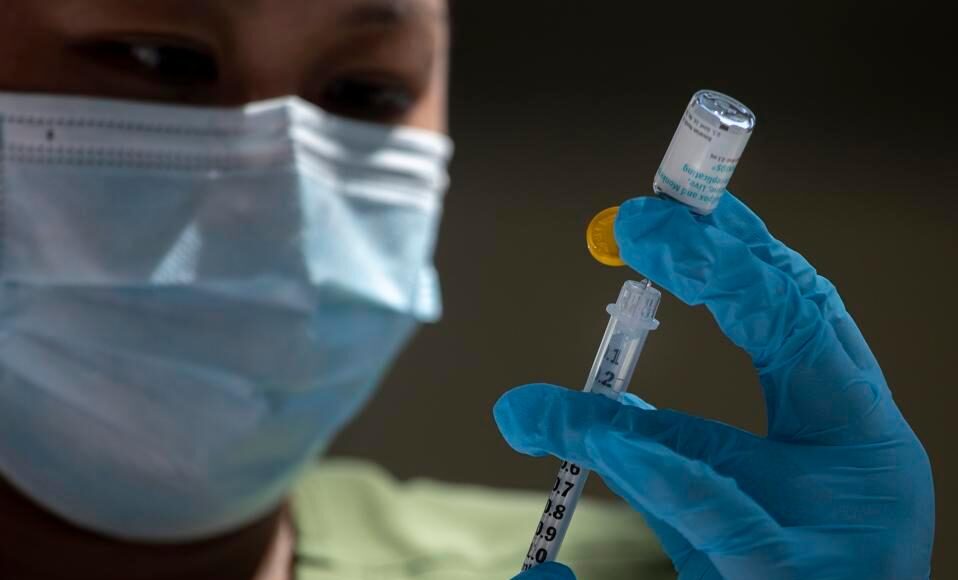Shares for mpox vaccine maker Bavarian Nordic continued to surge on Friday after the World Health Organization declared a public health emergency over an escalating outbreak of the disease in Africa, part of a wider rally for linked health stocks as nations mobilize to combat the virus and the company seeks approval to use the shot in adolescents.
Bavarian Nordic stock jumped by more than 14% during early trading in Copenhagen on Thursday, though gains atrophied to around 12.5% as trading continued.
The Danish company is one of the only companies in the world with an approved mpox vaccine on the market—it sells the shots under brand names Jynneos, Imvamune and Imvanex—and its product is the vaccine of choice by healthcare providers on account of its more favorable risk profile.
The rally continues a days-long streak for the firm after the WHO joined Africa’s top public health body in declaring a growing mpox outbreak in central Africa a public health emergency, and extends gains of roughly 12% and 8% from Wednesday and Thursday, respectively.
In total, Bavarian Nordic stock has risen more than 40% over the last five days.
Emergent BioSolutions, a U.S. firm that acquired a smallpox vaccine from French pharma giant Sanofi in 2017 called ACAM2000 that could be made available for use against mpox, has also surged, gaining around 12% on Wednesday and 14% on Thursday.
The Maryland-based company was up another 9% in premarket trading on Friday and if gains are retained the firm will have climbed more than 40% in the last four days.
Emergent’s ACAM2000 is designed for use against smallpox. Smallpox, or variola, is one of the deadliest pathogens to have struck humanity—in the best of cases, around a third of patients with smallpox would die and some versions were almost always fatal—and one of history’s biggest killers. It is the only human infectious disease to have been eradicated and it has not been routinely vaccinated against for decades since its eradication in 1980. Shots like ACAM2000 are believed to be incredibly effective against smallpox and, as the variola virus is related to the monkeypox virus, it is believed they would induce strong immunity against that as well. There are also immense supplies of the shot readily available as many countries—including the U.S.—maintain large stockpiles of ACAM2000 in case smallpox is deployed in a biological or bioterrorist attack. Officials are reluctant to use it in a widespread vaccination campaign, however, and it has drawbacks that make it a less favorable alternative to shots like Bavarian Nordic’s. In particular, the shots have a risk of potentially dangerous side effects that were considered acceptable against a threat like smallpox but are generally considered unacceptable against a less significant threat like mpox. The shot is also inappropriate for use in pregnant people, infants and immunocompromised people, many of whom are considered to be most at risk of mpox, as it uses a live virus to induce immunity (another relative of smallpox and mpox called vaccinia). The vaccine is delivered using a more cumbersome technique than used to deliver most other vaccines today, meaning many vaccinators would require additional training and other equipment to deliver the shots at scale.
Bavarian Nordic’s mpox vaccine is the only shot to have secured widespread approval for use against the virus around the world. Japan’s KM Biologics secured domestic approval for its LC16 vaccine during the global mpox outbreak in 2022, but is not used or authorized widely around the world. Another shot for smallpox that could be turned against mpox has been approved in Russia, which the WHO says is the “first fourth-generation smallpox/orthopoxvirus vaccine.” It was developed and registered by the country’s Vector institute, the historic home of the Soviet Union’s biological weapons program and host to one of two authorized smallpox repositories globally (the other being the CDC).
Bavarian Nordic on Friday submitted data to the European Union’s medicines regulator with a view to extending use of its vaccine in the bloc to cover adolescents ages 12 to 17. Children appear to be particularly at risk of the new variant spreading in central Africa and Bavarian said the agency’s review means authorization could be expanded from October. Bavarian Nordic said it is also planning to conduct further trials of the shot in children as young as two.
WHO director general Tedros Adhanom Ghebreyesus declared a public health emergency of international concern on Wednesday, after a similar move by the Africa Center for Disease Control and Prevention, the continent’s top public health body. The disease, formerly known as monkeypox, spreads primarily through close contact with infected people, animals or contaminated materials like towels and typically causes symptoms including a fever, swollen lymph nodes and characteristic, pus-filled rash. While infections are normally mild, the virus can and does kill, and young children, pregnant people and those with compromised immune systems are at risk of poor outcomes. The virus variant responsible for this outbreak is different from that behind the global outbreak in 2022 and data suggests it has a death rate as high as 10%. Data is difficult to gather precisely, especially where genetic classification is required, but Africa CDC officials say there have been more than 17,000 suspected cases this year so far and more than 500 deaths. This week a case was reported in Sweden, the first time the variant has been spotted outside of Africa, and more cases are suspected in Pakistan.
10 million. That’s how many vaccine doses Bavarian Nordic says it can supply by the end of 2025.
Get Forbes Breaking News Text Alerts: We’re launching text message alerts so you’ll always know the biggest stories shaping the day’s headlines. Text “Alerts” to (201) 335-0739 or sign up here.








